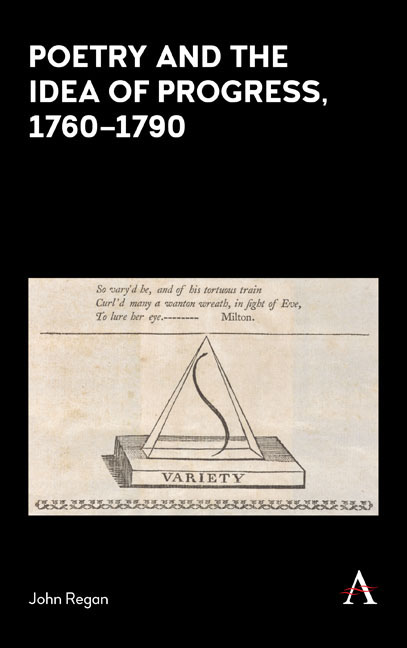Book contents
- Frontmatter
- Contents
- List of Figures
- Acknowledgements
- Introduction
- 1 Progress by Prescription
- 2 Thomas Sheridan and the Divine Harmony of Progress
- 3 ‘There Is a Natural Propensity in the Human Mind to Apply Number and Measure to Every Thing We Hear’: Monboddo, Steele and Prosody as Rhythm
- 4 ‘[C]ut into, distorted, twisted’: Thomas Percy, Editing and the Idea of Progress
- 5 ‘Manners’ and ‘Marked Prosody’: Hugh Blair and Henry Home, Lord Kames
- Afterword: Rude Manners, ‘Stately’ Measures: Byron and the Idea of Progress in the New Century
- Conclusion
- Notes
- Bibliography
- Index
- Frontmatter
- Contents
- List of Figures
- Acknowledgements
- Introduction
- 1 Progress by Prescription
- 2 Thomas Sheridan and the Divine Harmony of Progress
- 3 ‘There Is a Natural Propensity in the Human Mind to Apply Number and Measure to Every Thing We Hear’: Monboddo, Steele and Prosody as Rhythm
- 4 ‘[C]ut into, distorted, twisted’: Thomas Percy, Editing and the Idea of Progress
- 5 ‘Manners’ and ‘Marked Prosody’: Hugh Blair and Henry Home, Lord Kames
- Afterword: Rude Manners, ‘Stately’ Measures: Byron and the Idea of Progress in the New Century
- Conclusion
- Notes
- Bibliography
- Index
Summary
Part One: The Cultural Logic of Progress
As the Seven Years War drew to a close in 1763, the idea of progress in British intellectual life was undergoing a process of rebalancing. In the earlier eighteenth century, the religious implications of the word ‘progress’ commonly outweighed suggestions that human, morality, intellect, society or art could be improved. Broadly providential, the word suggested that the only human elevation possible could be towards God. But in the time span specified by this book's title, humanist conceptions of progress began to gain greater purchase among British historians and philosophers, albeit that these never supplanted the divine valences of the idea. This book is about this rebalancing: how it shaped, and was shaped by, poetry and poetics in the time.
Several important social and political developments were coeval with the rise of humanist ideas about human development in what J. G. A. Pocock has called the ‘high eighteenth century’. Throughout the decades 1760–90, the enclosure laws sharply truncated common rural rights, and the earliest convulsions of the Industrial Revolution were being felt. Migration from country to city began to ramp up throughout Britain, and modern party politics were taking shape. While Scotland's political and social conditions after the 1707 union can hardly be said to have been placid or stable, the Jacobite uprisings of 1715 and 1745 could by 1760 at least be viewed with some historical perspective rather than with visceral distaste. Amidst these changes, ideas of human improvement and decline became cultural cynosures. They influenced and were influenced by several different and disparate domains, as what was commonly referred to as ‘commercial society’ found definition in texts by Adam Smith, Adam Ferguson, Francis Hutcheson and Henry Home, Lord Kames. These domains included commerce and science, aesthetics, farming and print culture, nation and faith, art, environment and the offices of state, to name a few. Of the environment, earlier in the century, John Locke, and then Montesquieu borrowed from Vitruvius to propagate ideas of man's being influenced by his surroundings, and fostered the consequent conviction that these were available to improvement.
- Type
- Chapter
- Information
- Poetry and the Idea of Progress, 1760 , pp. 1 - 26Publisher: Anthem PressPrint publication year: 2018



